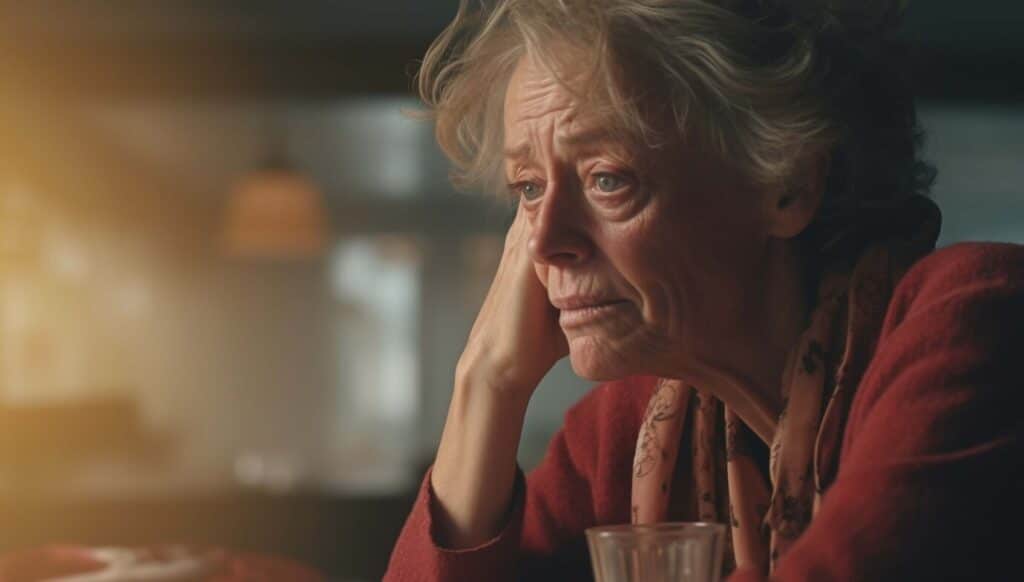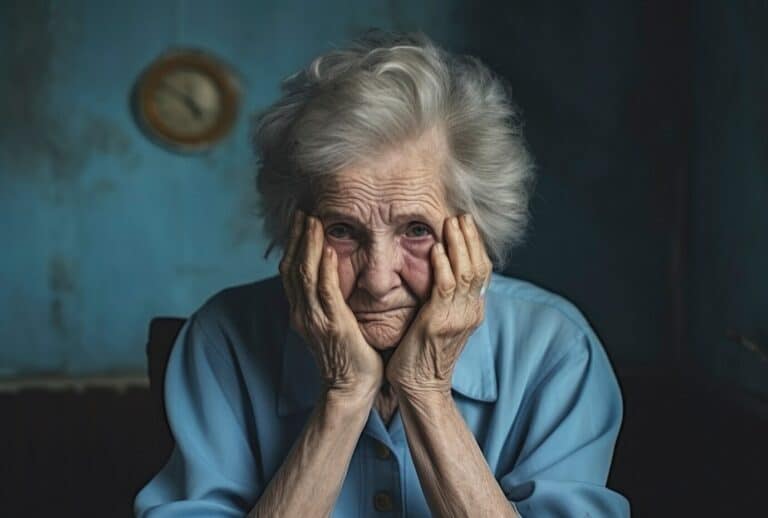As we journey through the golden years, the challenges we face may not always be apparent to those around us. At The Inn at The Terraces in Chico, CA, we understand the importance of shedding light on the often-overlooked topic of anxiety in older adults. Contrary to common misconceptions, anxiety is not solely a concern for the young. Seniors experience anxiety in unique and sometimes unexpected ways. Join us as we explore seven surprising truths about anxiety in older adults, providing insights and support for our cherished residents and seniors everywhere.
1. The Prevalence of Late-Onset Anxiety:
Contrary to popular belief, anxiety can develop or resurface later in life, even if one has never experienced it before. Late-onset anxiety is more common than you might think, with various factors such as health issues, life transitions, or cognitive decline triggering its onset. At The Inn at The Terraces, we recognize the significance of late-onset anxiety and provide tailored support to help our residents navigate this challenging experience with compassion and understanding.
2. Underreported Symptoms:
Anxiety symptoms in older adults often go underreported or misattributed to other age-related conditions such as dementia or physical ailments. Recognizing these symptoms is crucial for early intervention and improved quality of life. Restlessness, irritability, sleep disturbances, and cognitive difficulties are some common manifestations of anxiety in seniors. By addressing these symptoms proactively, we empower our residents to lead fulfilling lives free from the grips of fear.
3. Unique Triggers and Stressors:
While life transitions and health concerns can trigger anxiety in older adults, unique stressors may also contribute to their distress. Loss of independence, financial worries, social isolation, and existential concerns are just a few examples of triggers that may exacerbate anxiety in seniors. Creating a supportive environment that acknowledges and addresses these triggers fosters a sense of security and well-being for our residents at The Inn at The Terraces.

Triggers and Stressors
4. Overlooked Cultural and Generational Factors:
Cultural and generational factors can significantly influence how anxiety is perceived and expressed among older adults. The stigma surrounding mental health issues, stoicism, and the “pull yourself up by your bootstraps” mentality may prevent seniors from seeking help or expressing their emotions openly. At The Inn at The Terraces, we strive to create a culture of acceptance and understanding where residents feel empowered to share their concerns and seek assistance without judgment.
5. Impact on Physical Health:
The detrimental effects of anxiety on physical health are often underestimated in older adults. Chronic stress and anxiety can weaken the immune system, exacerbate existing health conditions, and increase the risk of cardiovascular events. By addressing anxiety holistically through personalized care plans, we aim to promote not only mental well-being but also physical health and longevity for our residents.
6. Importance of Social Connection:
Social connection plays a pivotal role in mitigating anxiety and promoting overall well-being in older adults. However, seniors may face barriers such as mobility issues, bereavement, or lack of opportunities for social engagement. At The Inn at The Terraces, we prioritize community building and offer a wide range of activities and events to foster meaningful connections among residents. Whether it’s through shared hobbies, group outings, or simply enjoying a meal together, we believe in the healing power of human connection.
7. Strategies for Coping and Support:
Empowering seniors to cope with anxiety involves a multifaceted approach that encompasses therapeutic interventions, lifestyle modifications, and social support. Cognitive-behavioral therapy, relaxation techniques, regular exercise, and mindfulness practices are some effective strategies for managing anxiety in older adults. Additionally, our dedicated team at The Inn at The Terraces provides personalized support and encouragement every step of the way, ensuring that our residents feel empowered and supported in their journey towards greater emotional well-being.
FAQs:
- Can anxiety develop in older adults, even if they’ve never experienced it before?
Absolutely. Late-onset anxiety is a common occurrence among seniors. It can be triggered by various factors such as health issues, life transitions, or cognitive decline.
- How can I differentiate between everyday aging concerns and anxiety in older adults?
While some degree of worry or stress is average in older adults, persistent or excessive anxiety that interferes with daily functioning may indicate a more severe problem requiring intervention.
- Is it possible to treat anxiety in older adults effectively?
Yes, anxiety in older adults can be effectively treated through a combination of therapeutic interventions, lifestyle modifications, and social support. Seeking professional help and developing personalized care plans are critical steps in managing anxiety in seniors.
Takeaways:
- Anxiety in older adults is a prevalent but often overlooked issue that requires attention and support.
- Late-onset anxiety can occur in seniors and may be triggered by various factors, including health concerns and life transitions.
- Recognizing and addressing anxiety symptoms early can lead to improved quality of life and overall well-being for older adults.
- Social connection, holistic interventions, and personalized support are essential in managing anxiety in seniors.
If you or a loved one is struggling with anxiety in later life, know that you’re not alone. The caring team at The Inn at The Terraces is here to provide support and guidance tailored to your unique needs. Contact us today at 530-535-7337 to learn more about how we can help.

